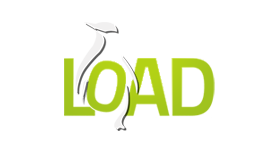2019-05-04, 14:00–14:50, Room A
A fun deep dive into the world of designing electronics intended to encourage you to look beyond the end of your (software) nose
AWS, DNS, K8S. We're being exposed to IT so much at work that some of us just call it a day and refrain from any hobbyist computer stuff in our private time and maybe you have also more important responsibilities to take care of such as family. But maybe you do still from time to time try to pursuit a fun project. If so, and if you know the "bottom drawer syndrome" (enthusiastically started something, first lost time, then interest, now stored things away out of sight) or if can relate to "buy first, think of a purpose for it later", this talk is for you.
My motivation was to bring both purpose and John Bercow, I mean, orrrrder, to two such gadgets in my drawer, a Raspberry Pi and a LED stripe. In this talk I will recap and take you along on my journey during which I had to leave my usual comfort zone, that is software, and delve into hardware and electronics. Don't worry, this is not going to be a electronics 101 course. Instead I want to remedy some unwarranted fears and encourage you to look beyond the end of your (software) nose as electronics illiteracy did not stop me either from being successful as proven by my PiStripe uHAT which I'll bring along (and maybe give away one or two).
Pieter Hollants solaced himself over the downfall of Commodore and the beloved Amiga world by discovering the Un*x/Linux world at the end of the 90s. After fulfilling his duties at the IT support front, promoting himself to "Senior Intern" at Linux outlet SUSE and abusing his position as Linux Systems Engineer at German Air Traffic Control to become a resident conference who^Wvisitor, Pieter has returned to enjoying the freedom as an independent Linux developer, consultant and occasional involuntary sysadmin. He runs some small Open Source projects of his own but mostly contributes every now and then, here and there and blogs at http://www.0xf8.org.
